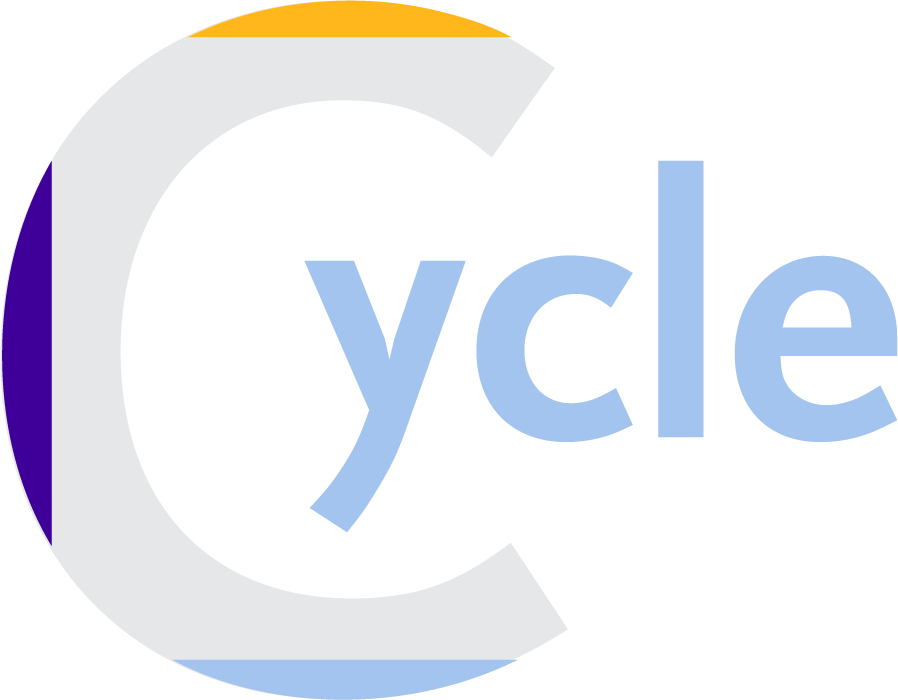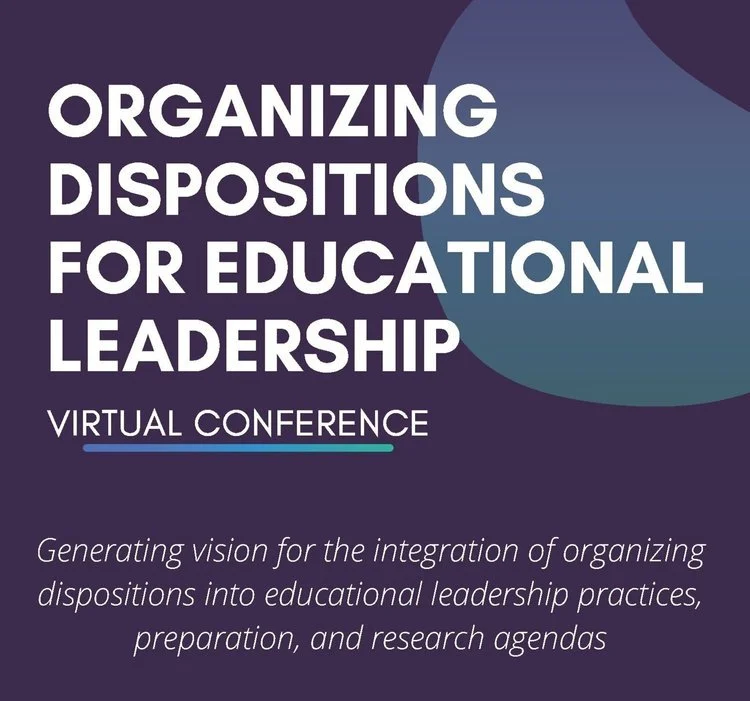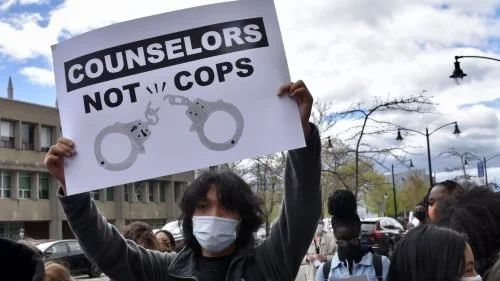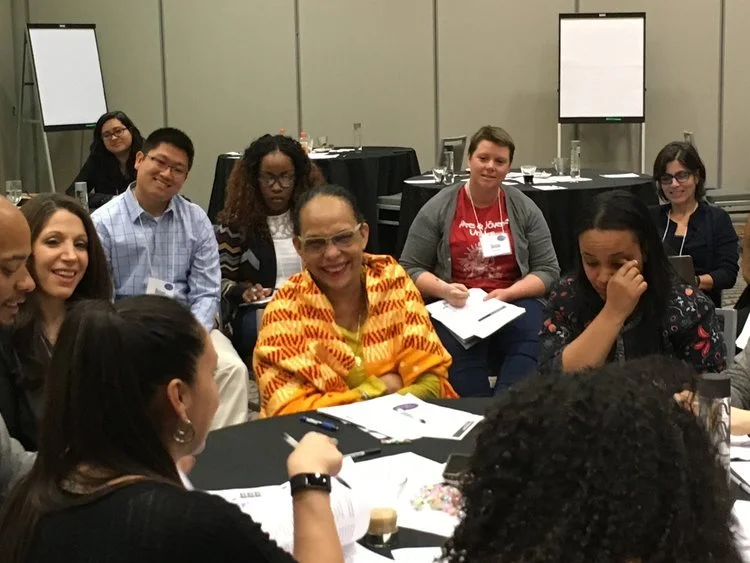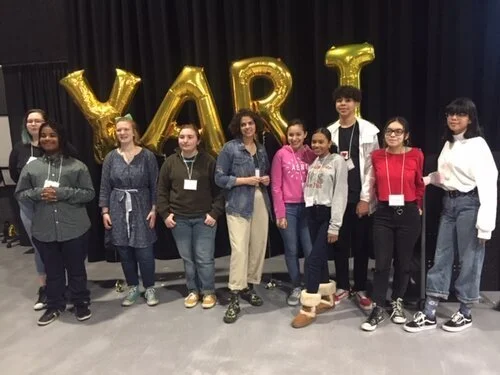Research & Learning
Youth and families must be centered in the movement for education justice, and research and data can be powerful tools to help identify, advocate, and organize for community priorities. CYCLE’s Research and Learning Team focuses on research that supports youth and families to fight for more equitable and just schools. This happens most often through Critical Participatory Action Research projects, in which CYCLE staff offer training, tools, and support for youth and parents/caretakers to conduct research in their own communities, and develop data-informed and community-driven solutions to racial and educational inequities. CYCLE staff also directly conduct research and analysis to inform community organizing campaigns, led by youth and families, that seek change in school and district policy and practice.
CYCLE’s Research & Learning Team has expertise in:
Critical Participatory Action Research (CPAR)
Designing and conducting qualitative, quantitative, and mixed-methods research studies
Data analysis and visualization
Survey design and analysis
Policy analysis
Indicator development
Working with intergenerational, multilingual, and cross-stakeholder teams
Current Projects
Schools and Communities Organizing for Racial Equity (SCORE)
SCORE is a community-driven, action-oriented research project that brings together an intergenerational Community Research Team consisting of students and parents/caregivers recruited in partnership with community-based organizations. With support from higher education partners at CYCLE, this team:
Conducts community research;
Identifies community priorities for educational and racial equity;
Identifies indicators to measure district progress on these priorities; and
Develops a “SCOREcard” tool that presents the community priority areas, identified indicators, and related data.
SCORE represents an effort to: 1) measure what matters to students and families of color, students and families experiencing economic hardship, and others most directly impacted by inequities; 2) help school districts understand, be responsive to, and be held accountable to community priorities for educational and racial equity; and 3) share school district progress on community priorities with youth, parents, and other community members.
Manchester Organizing for Racial Equity (MORE)
CYCLE is partnering with the Manchester (Connecticut) Public Schools and RE-Center Race and Equity in Education to develop and implement a community-engaged research process focused on identifying existing obstacles to racial and educational equity and developing collective solutions. The pilot 10-12 week MORE process, launching in Spring 2024, will engage youth, parents, and other community members in getting to know the district’s fastest growing, largest population - the Hispanic/Latinx/Latine population - and learn how the district and community can better serve them. The MORE Research Team will also work with the district and community organizations to develop and implement changes that contribute to more equitable systems based on the information collected. After the pilot, the MORE process will be refined and replicated across other populations who are disparately impacted and who experience inequities by school system and community organization practices and policies. MORE features a shortened and targeted adaptation of CYCLE’s SCORE process.
Past Projects
Organizing Dispositions for educational leadership
On October 22-24, 2020, CYCLE hosted a conference to take up the question of whether and how organizing dispositions might be employed by educational leaders serving in both traditional and non-traditional leadership positions. During the conference, researchers, education leaders, community organizers, and education reform support organization staff engaged to theorize and deepen understanding about how we might integrate what we know about educational/school leadership with what we know from organizing theory and practice.
Positive & Safe Schools Advancing greater equity (PASSAGE)
Through Positive and Safe Schools Advancing Greater Equity (PASSAGE), CYCLE staff supported districts and communities working together to reduce discipline disparities and promote positive approaches to school discipline.
RESEARCH ON SCHOOL AND STUDENT SAFETY AND DISCIPLINE IN PROVIDENCE PUBLIC SCHOOLS
CYCLE supported the Providence Alliance for Student Safety (PASS), which is comprised of six youth-serving organizations (Providence Student Union, ARISE, PrYSM, RI Urban Debate League, Youth In Action, and Young Voices) to conduct research to better understand issues of school and student safety and discipline in Providence Public School District (PPSD), as well as the kinds of supports that students need.
STRENGTHENING COMMUNITY VOICE IN THE USE OF RHODE ISLAND ESSER FUNDS
Working in partnership with the Alliance for Rhode Island Southeast Asians for Education (ARISE), Rhode Island Center for Justice, Rhode Island Kids Count, the Social Policy Hub for Equity Research in Education (SPHERE) at RI College, and Young Voices, CYCLE coordinated efforts to strengthen community voice and engagement when it comes to the use of federal Elementary & Secondary Schools Emergency Relief (ESSER) funds in the state of Rhode Island. Goals for this project include raising public awareness of ESSER funds in general, sharing tools for communities to engage in how ESSER funds are being used in their schools, and lifting up promising practices for community engagement from around the state and region for others to learn from. Leadership for this work was transferred to ARISE and Young Voices in the fall of 2022.
TEACHER LEADERSHIP & ADVOCACY FOR EDUCATION POLICY
Published while CYCLE staff were still at the Annenberg Institute for School Reform at Brown University, Agency into Action: Teachers as Leaders and Advocates for Public Education, Communities, and Social Justice, was the result of a research field scan and landscape analysis about teacher leadership and advocacy for education policy. Organizations and efforts across the country are working towards a model of leadership in which teachers can collectively assert their influence on policy through their own voice, expertise both inside and outside of classrooms and schools, and advocacy.
UNDERSTANDING ROOT CAUSES OF INEQUITIES - CROSS-DISTRICT LEARNING
CYCLE provided technical assistance to support cross-site learning among the districts involved in the Nellie Mae Education Foundation’s Understanding Roots Causes of Inequities grant fund (Cambridge and Waltham, MA; Manchester and Danbury, CT; Manchester, NH; and Central Falls, RI). CYCLE worked to build participatory learning spaces through which district teams can build relationships, generate knowledge, engage in learning, and share victories and challenges.
VERMONT EDUCATIONAL EQUITY POLICY BRIEFS
In 2018, The Bay and Paul Foundations supported CYCLE to create a series of equity-focused educational briefs to inform the Vermont Education Equity Project (VEEP). VEEP’s mission is to examine systemic inequities faced by school-aged youth in Vermont's public schools, as well as possible solutions, and develop a policy agenda.
YOUTH ACTION RESEARCHERS AT THE INTERSECTION
KnowledgeWorks’ Student-Centered Learning Research Collaborative, the Center for Applied Special Technology, The Youth Development Program at Rhode Island College, the Met High School, and CYCLE partnered to support a cohort of youth researchers who are at the intersection in that they 1) identified as a student of color, LGBTQ, English language learner, or come from a low-income household; and 2) would benefit from less traditional forms of schooling. The project included training from professional researchers and ongoing mentorship as the youth researchers investigated teaching and learning issues and also shared their findings to multiple audiences.
